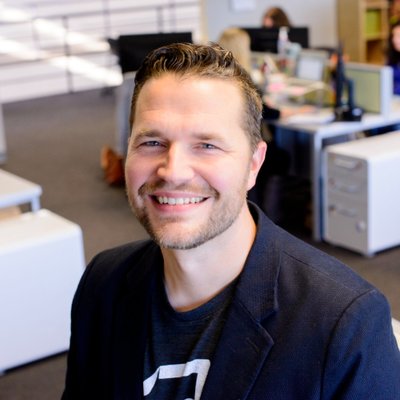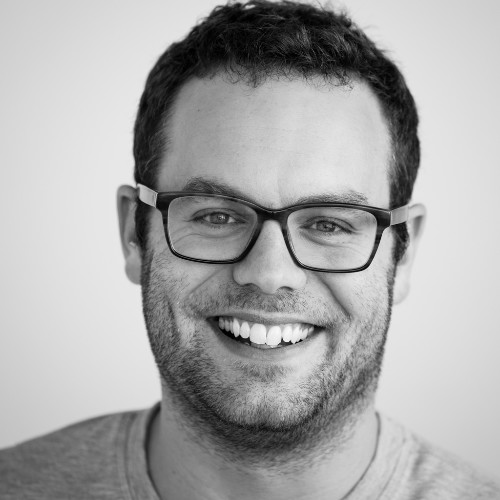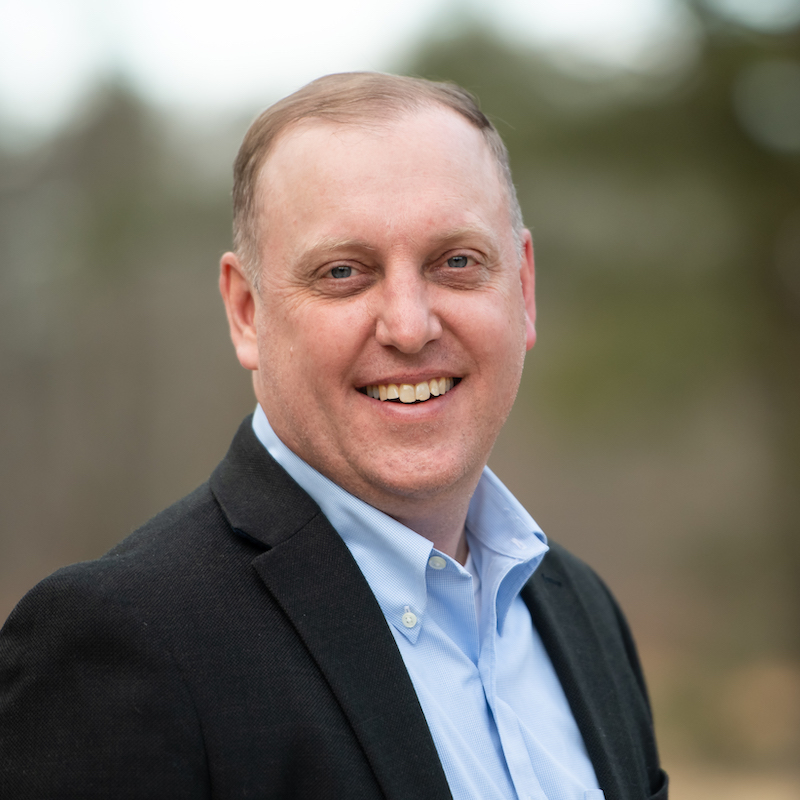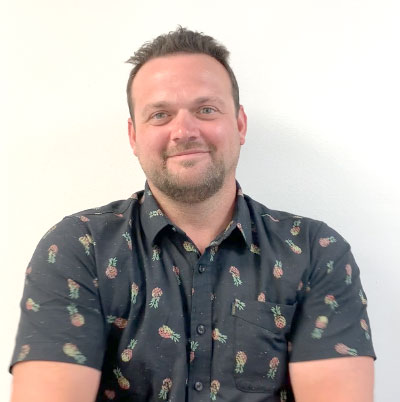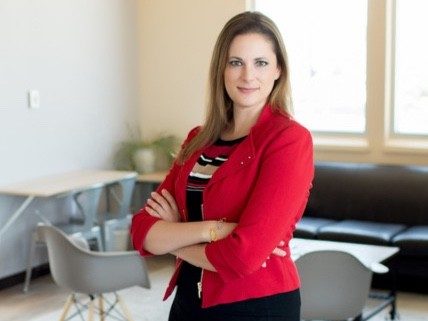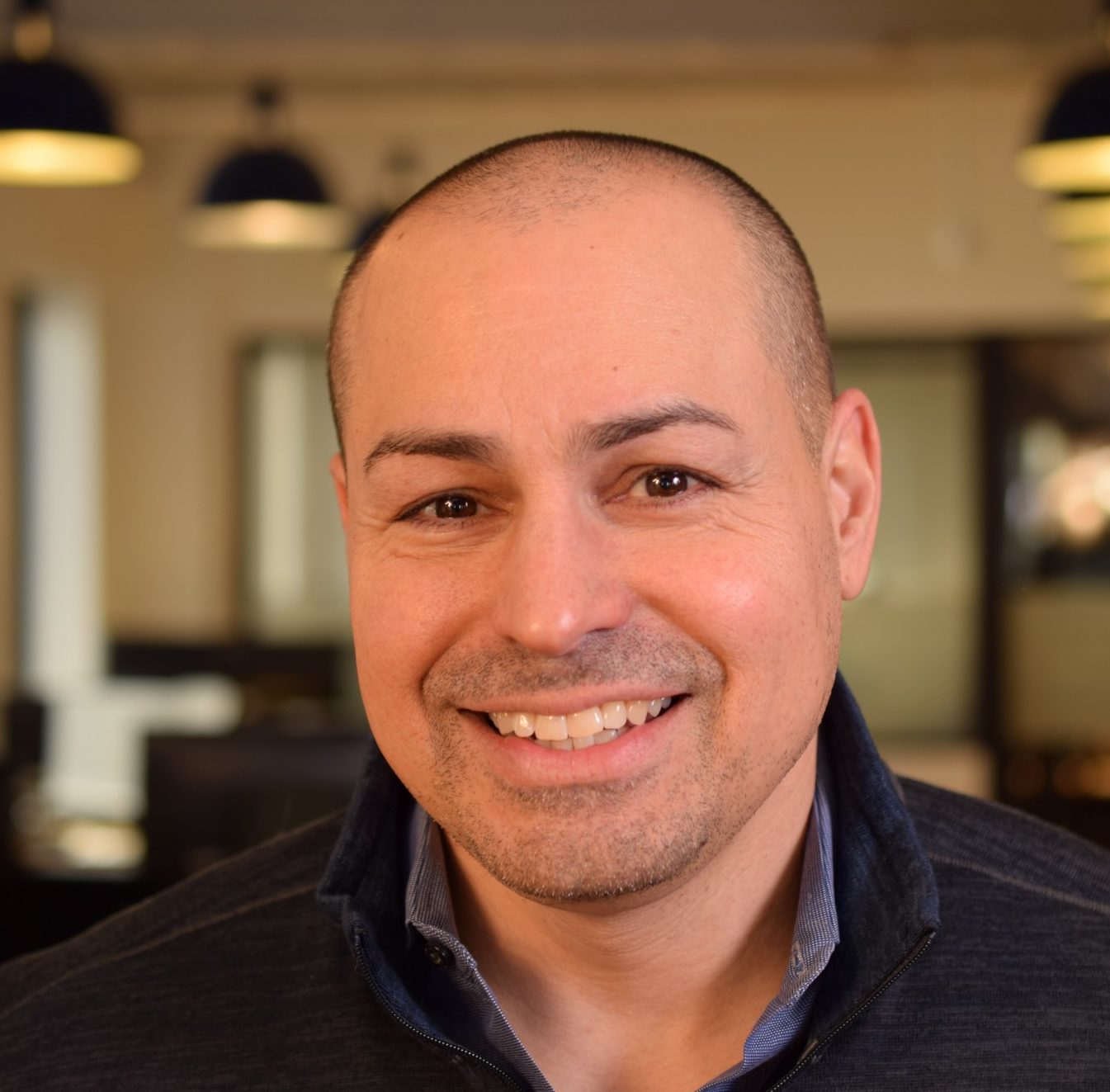How much noise is too much? Can you avoid distractions or do you need them to get work done? The CEO of Formstack weighs in…
Welcome back to Work Minus where we talk about what we need to drop from how we work and quick habits you can make today to get closer to the future of work. Today, our guest is Chris Byers, he’s the CEO at Formstack, and this episode is Work Minus Noise. Hi, Chris. How are you today?
I am good. Thanks for the invitation to be there.
Yeah. We’re very excited to have you on here. This is a popular topic, Work Minus Noise. How would you define noise in the work space today?
I think noise is — I mean, we’ve got all kinds of noise, obviously. If you’re in a physical environment, you have people dropping by your desk. You’ve got emails coming in. You’ve got now often chat communication. So there’s kind of what we call work-proper noise and then there’s “personal outside noise”. And that could be social media and things that maybe distract you from your typical day.
How different is the level of noise in the workplace today compared to 20 years or more ago? Is there more, or is it just more obvious?
No. It’s probably more obvious. And if I have a dreamy thought back to the past, I think of my dad in his office, and he has a big stack of papers that he’s dealing with and doesn’t really even have a computer on his desk, and he has a calculator or something like that. And I think of that as less noisy. That being said, his phone rang all day. Obviously, that’s a big distraction. He had stacks of papers and it must have taken him 30% of his time just, where do I find this next set of papers? How do I physically collect the paper? So it’s probably not too different. I think maybe the sum total of the noise is about the same, the problem is that it comes from so many different ways. You’ve got to protect yourself from like tens of hundreds of different ways people can kind of get into your life and distract you.
So when it comes to dealing with this noise, you have to consider yourself — because it’s coming in from so many fronts now. Instead of just one or two, or less than ten different places, it’s coming in from hundreds of thousands, right?
Absolutely. And I think many great example of that is I have a laptop sitting on my desk, I have my phone sitting at my desk, and then I have an iPad. And I’ve had to manage that down to what each of those actually does for me because you can actually have your phone ring on all three devices and that’s going to completely destroy whatever zone you might have been in and it’s just easy for those things to kind of creep into your life and see if we can work to minimize that.
So as the CEO of a company, what kind of dangers do you see as you and other people succumb to the noise?
The biggest thing for me is — so I just went on vacation for a week and for the first time in three years, I really tried to completely stay out of things. And so I deleted email off my phone. I left my phone in a drawer most of the day, so I got really really disconnected. And the wonderful thing about that was I felt like free or more relaxed than I have in a long long time, and yet it’s really really hard to see that. You feel like you need to stay connected so that people can get in touch with you and know what if an emergency happen. And I think the thing that eventually causes you problems, causes you pain is you never really get time to step away from things and see things from an outside view. You’re in the weeds, doing the work and you never take a chance to step back and say: Am I doing the right things? Am I working on the right things? Is this the right structure? And so I think that plays out for everybody, no matter what your job is. You don’t have to be the CEO. You can be solving customer support tickets. But there’s a way to go about that that probably is productive and there’s a way you go about that that probably isn’t productive. And if you can step away a little bit, you can actually see that a little bit more clearly.
Yeah. I’m reminded of a time when I was doing some language learning practice and our teacher had told us, you need to take some downtime so that your brain can process everything it’s been doing. As you step away from it, you get a fresher view of what you have done in the past. But when you’re always in it all the time, that it’s hard to get that perspective.
Yeah. That’s absolutely right. Yeah. I think the downtime is — and I often tell people, if I’m in the middle of the conversation, trying to make a decision about something, or make a strategic call and where we should go, I’m actually rarely, very rarely good at making that call in the moment. I usually need to take in the data and then needed to walk away. And often, I’ll walk out of the room and it will come to me. Or I’ll be in the car and it will come to me. But those are the moments when I’m actually not connected to everything that I actually, I think, makes the wiser decision.
So you gave us an example of what it means for how you stepped out of in a vacation setting, putting your phone away. What are some other solutions you’ve personally practiced to put some of the space around you and the noise?
Well I think about the day-to-day tasks that you start to see in your work world and I have tried every time to delegate some things but then automates other things. And so within, say, email, I have actually delegated to my assistants the ability to, you know, so you can see all of my emails, you can grab things that are just going to be a distraction to me and get rid of them before I ever see them. You can draft emails to people so that most of the work is done. Sometimes in the past, they have used things like the canned responses in Gmail that start to try to automate things. But that is about — actually email is probably the one of the worst offenders. You get things coming in all the time and you effectively get what we used to call junk mails. People just reach out to you whenever they feel like it and, you know, that’s the way people get sales. I get it and I’m not offended by it but you reaching out to me via email is not necessarily something I need to respond to, even though it kind of feels like, oh you get into my space, I should probably respond you. And so I’ve had to come up with systems over time, again, like delegating my email to allow those so that’s not going to distract me and take my time away from what I really need to get done.
Yeah. I think the farther we get into this digital world, the more we realize how bad, especially, email is. Because, you know, email is supposed to be with the replacement for the office mail or for your post office box, and yet it’s come to this place where if someone’s doing work, if they’re sitting in their inbox for four hours a day, they feel like they were being productive. Whereas, if somebody said, hey, I spent four hours just sorting through all my mail, then you would think, man, you’re wasting your time. But somehow, email has become this kind of thing to say, hey, I’m being productive if I’m doing my email.
Yeah. Email is a funny thing. Ten years ago, I used to work on really big deals that required lawyers to get deals done. And the way you solve problems, if you got on the phone and you talk realistic issues and then you move forward. Today, I worked on a deal really recently, over the course of a couple months, and everything was done via email. And the nice thing about that in some way is you could shoot a quick email and get a very quick response. On the other hand, I felt like you missed an opportunity to actually bring it all together and say, all right, let’s get on the phone and just discuss every one of these issues and actually consolidate that thinking time down to one moment versus 53 moments that come over the course of the week of back-and-forth emails. Funny enough, even internally, I will tend to encourage people to get on the phone more than email sometimes. We’ve lost touch with the fact that you can actually hear somebody’s voice and plow through a lot of issues really quickly. Whereas, we kind of take the, we call this a lazy option in some ways, doing email, but then that creates more threads, more work, and ultimately cost you more time.
Tell me a little bit more about the automation side of things. You said, sometimes you spend time trying to find ways to automate things to reduce the noise. How does that work for you?
Well, I mean some of the simple — I call it automation. It’s not exactly automation but some of the simple things are actually getting rid of certain app on maybe a given device. And so we use Slack, internally, for chat. Well, I find that that’s helpful in one plane. Like on my computer, chatting is good. Sometimes I leave it on, but I’ll often remove it from my phone because it then creates this, again, distraction or something that’s going all the time and it goes into the night. We have people who live all over the world and so things be going about any time. But the other thing around automation is — the great example of something we did internally, recently, was we filled an HR for the employees annual review process. We actually developed that into a workflow so that if an employee comes in, picks up a process or takes that process off by doing a self-review, that automatically goes the manager who does their review, which goes back to the HR team who will then say, okay, great, here’s the score this person got. Here is the raise they could probably get. And I think, in terms of automation, the biggest thing we face is we don’t stop and just simply ask a question. What is in my workflow, my day-to-day workflow, that could be automated? Because I think if we just ask that question, we come up with the answer. It’s not that hard to find ways to automate tasks or find a piece of software that does something better than we would do it manually. But we’ve done studies here that show 25% of — we did a study recently that show 25% of some of the people who took the survey, spend four or more hours a day doing manual data entry for spreadsheet at work. And that turns out to be a lot of time and there’s likely we don’t think of our time of work that much. But if you actually think about the hourly rate most people get, that turns out to be a lot, a lot, a lot of money. And if you can find ways to automate that, we can win.
Yeah. Absolutely. Four hours is a lot of time. Tell me a little bit more about how systematically, as a company, Formstack is finding ways to reduce noise. You’ve talked about you personally but what about as a whole company?
You know, I think we probably do it poorly, like most people do. Even though we build a workflow product and you’re familiar with this, being around workflow products, you can have them in front of you and often still fail to actually use them and kind of reduce some of that time spent. But I think what we have tried to do is put frameworks in place. As an organization grows, your ability to digest what’s happening is more and more complicated and it becomes less easy to see what’s going on. So we try to come up with frameworks that help you make smarter decisions. So think about building products. As we grow, we have put in place four pillars of the types of things we do in product development. So we build towards the platform. We build toward the market or enterprise that customer. We build towards the Salesforce market. And so putting those frameworks in place actually makes decision making and I’ll call it automated decision making. It doesn’t exactly automate decision-making. That’s not the real thing. But you need to call out all of the extraneous things that stress you out and decrease your ability to make decisions and kind of minimize those so that you can spend all your time saying, all right, we already know we need to develop for the Salesforce market. So let me make decisions within those buckets. So frameworks are the beginning of that. But that allows you to start to create systems around the books frameworks and pillars to move things quicker and to make operations work better.
That sounds great as a great way to be able to build in those systems that people know already what’s going ahead of time, so that they can make those decisions better. You talked about the fact that you have a lot of people on a lot of sides of the world, interacting with this. As you work with other cultures, you realize that, a lot of times, it’s in that chaos that a lot of people prefer to be in. There’s some cultures that prefer just to kind of — and people as well, that prefer to say, I just want to show up to work, do my 8 hours and go home. Whereas others say, I got to be around people. I got to be distracting people because that’s how we get work done. If we work independently, then we can’t collaborate and get better and innovate. So how do you find a way to balance that tension within your company?
That’s a great question we call ourselves a relational remote organization. So of a hundred plus people that we’ve got, most people do not physically work in an office and the most extreme of that is companies who actually don’t ever talk to their employees or don’t talk to their team. Everything is written communication or it’s all about producing a project or something like that. We feel like that you actually are extremely productive in an environment like that. You can sit behind your computer all day, actually reduce distractions especially if you’re at home, and you can get a lot done. The bad news is you, over time, lose a lot of energy that you get from other people around you. Yeah, you don’t get that collaboration. And so we heavily heavily heavily heavily use Zoom. You can use that for just audio. We very strongly encourage people get on video on a daily basis. So that allows you to get on with people, collaborate with them, but also allows you to spend plenty plenty of time during the day to be productive and get the things done that you want to get done. So it’s definitely a balance and you can actually get on too many video calls where you might as well be in an office, sitting in meetings all day, in a conference room as this can turn out to be the same thing. But the balance, you’re right, is important. You know, from a productivity standpoint, no distractions, no people around you is beautiful. But life without people around you is also really probably pretty sad. So I think it’s important to find ways to interact more with the people around you.
Do you think that remote working exposes you to more noise than co-locating does?
In my experience, remote actually creates an environment where you tend to be much less distracted. I think the people stopping by your desk, the conversations that pop up around you, and have a co-located space, those are very very distracting. Now, there’s some advantages to them like you have to have a sense of what’s going on around you more often. You might pick up on conversations about project you’re not really involved in but are helpful for you to know. You miss that in a remote environment. But it’s definitely distracting and hard to get focused. And so I’d say, most people, at least the people we hire, are very good at getting super focused and staying productive in a remote environment.
Good. Chris, tell me one really radical thing you would do to help your team be exposed to less distraction and less noise. What’s one very kind of far out the idea you have?
Well, I think it’s really hard to ask people to do something, make a major major change on a day-to-day basis. But one thing I’ve been considering here in the recent past is — I heard this actually from a guy named Henry Kaestner who was the co-founder of Bandwidth.com. They did, on vacation, they did what they called an embargo against communication for people on vacation. And I think that the first step to be a building block would be somewhat radical and set the stage for saying, you know what, when you go on vacation, you cannot communicate with people and we cannot communicate with you. That’s the gift we’re going to try to give you and that becomes the basis for saying, you are allowed to, at times, to completely disconnect from work so that you can get a perspective on life and perspective on your work. And know that every day, every moment is not about you just working here. So that’s probably what I have been playing around with and maybe your question will get me to get the movement on that.
Yeah. You should absolutely do it. I heard about one company that whenever somebody went out of the office on vacation, they put up an autoresponder that said — this person is on vacation. They get back on this day. You can contact them. And then they said, and your email will be deleted. So it’s said very clearly that they’re not going to get this message. You can contact them later. I thought that was brilliant.
Yeah. I like that.
Very good. All right. Well, tell us, Chris, we’ve been talking about world of work minus noise. What does that look like in the future? If we can achieve that, what kind of company are you talking about? What are the positive aspects of that you see?
You know, we all get in this mode where we tend to repeat the things that we see around us and repeating this, especially in a business, what that often means if you look around at competitors or people doing similar things and we say, oh look, they built this feature. We should put those our feature. And I think what that turn not getting rid of the noise, a bit of the noise, what somebody else doing, doesn’t allow us to step away and get really creative and solve some really cool and interesting problems. So I think if we can find ways to get rid of the noise, we can see some of the most creative outcome from businesses come out, that we’ve probably ever been.
Well, great. Chris thanks so much for being on the show. People want to connect with at formstack.com. You’re on Twitter, as well. Anywhere else they should go to?
Those are probably the best ways to connect.
All right. Well, thanks so much for being on the show. We appreciate it and we look forward to talking with you again soon.
All right. Thanks, Neil.
Chris Byers is the CEO of Formstack and runs the day-to-day operations of the company. His goal is to deliver on the company’s mission to “transform the way people collect data and put it to work.” Chris has been a part of remote organizations for several years, including heading up an international nonprofit while living in England and Poland. He currently leads Formstack’s remote team from the company’s home base in Colorado Springs.
